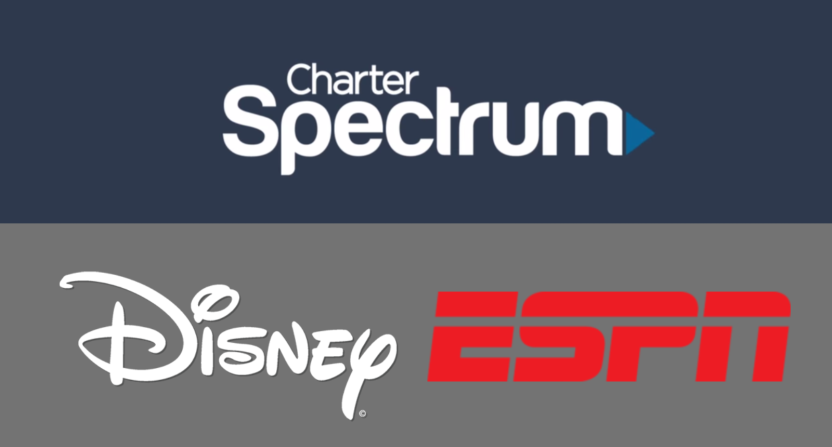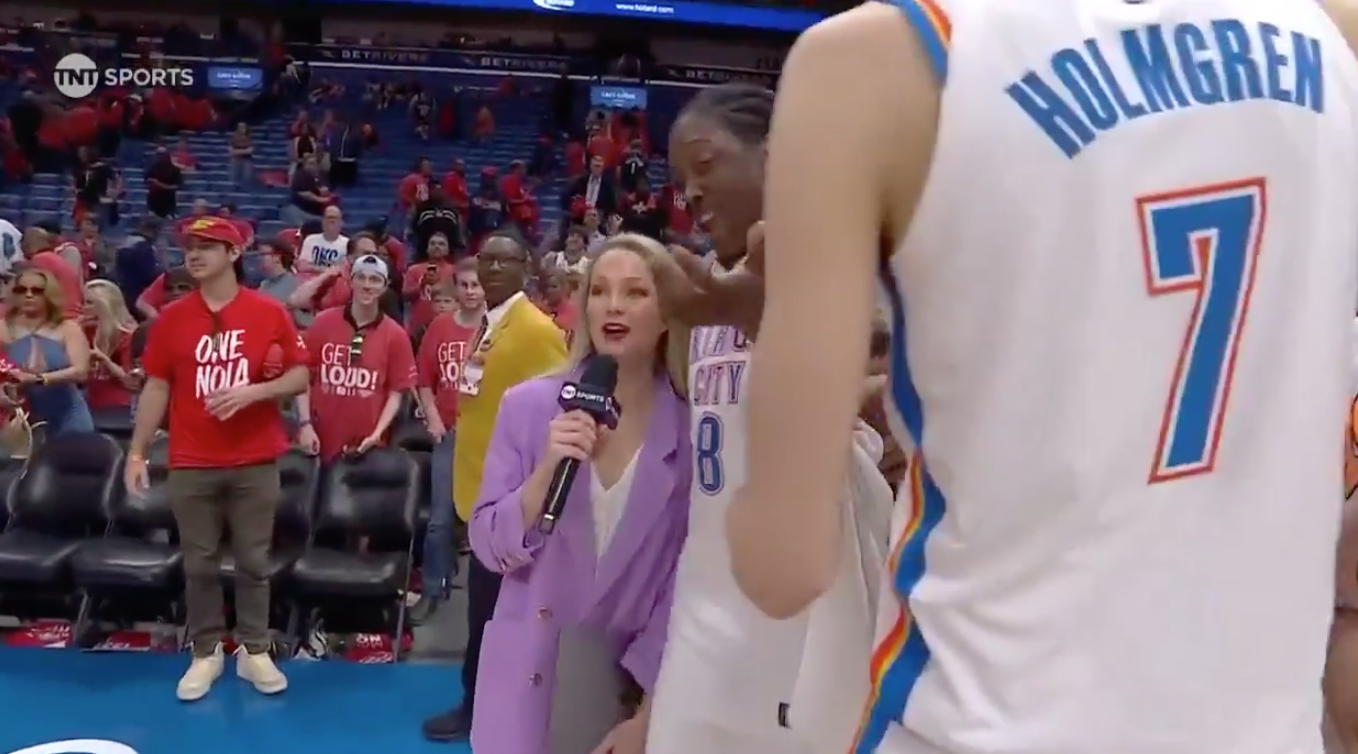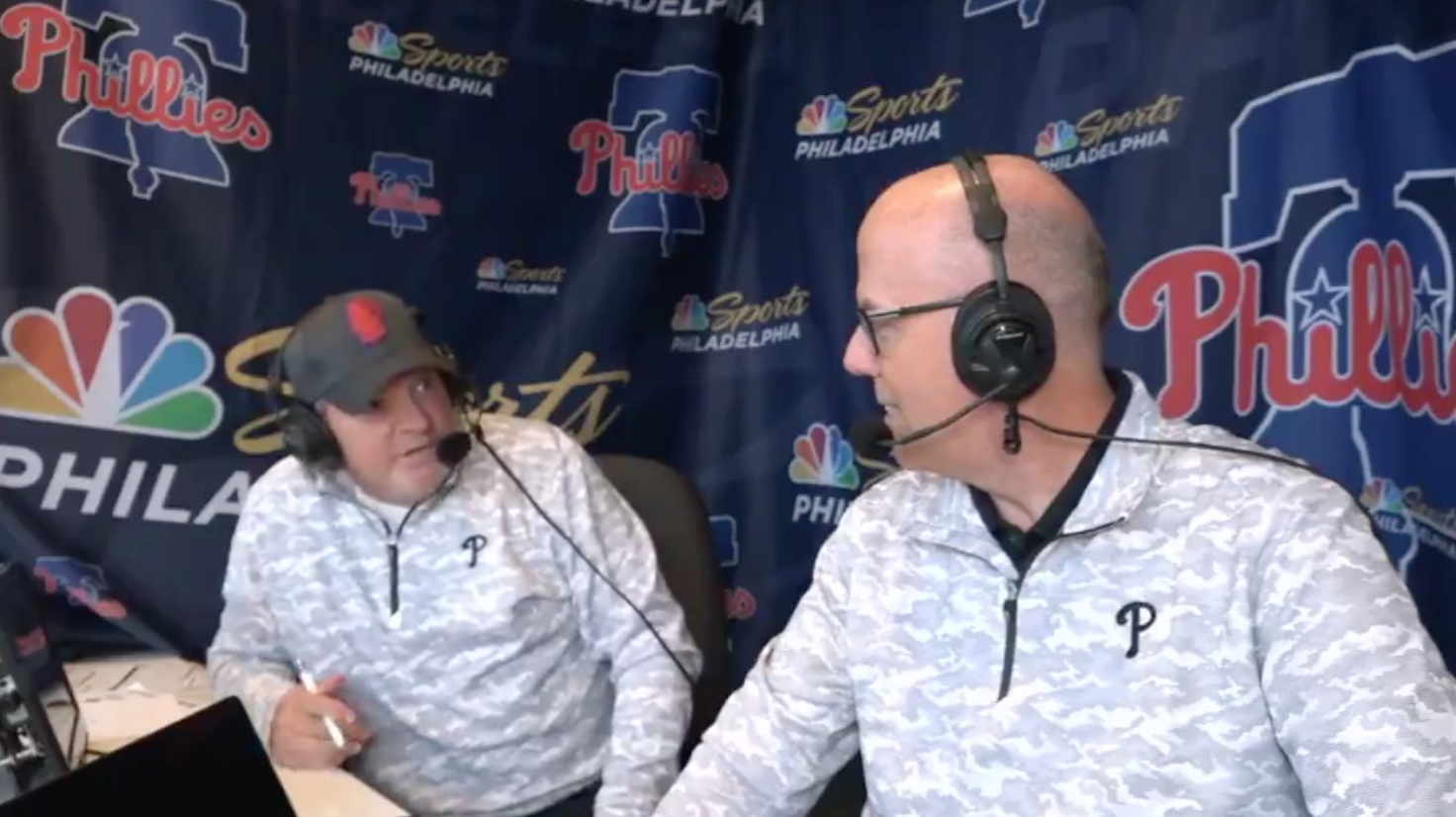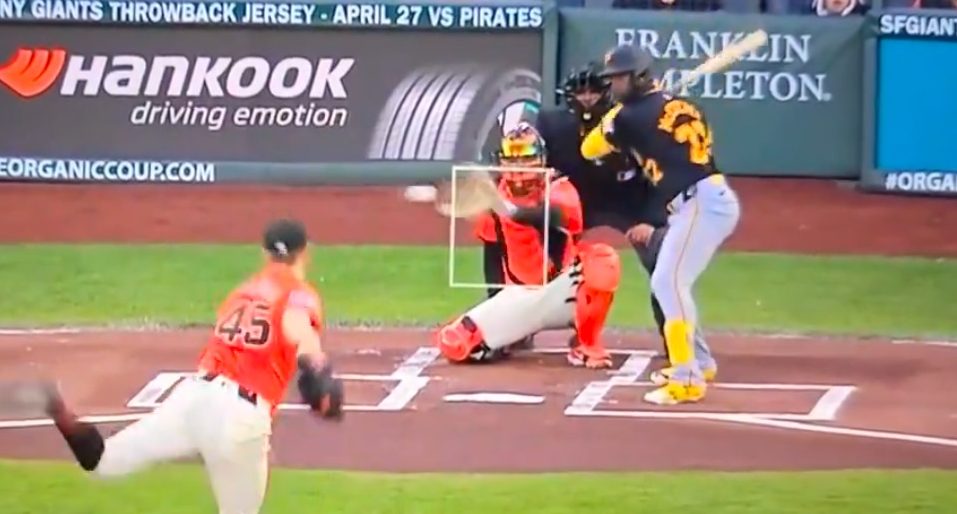With the 2023 start of Monday Night Football next week looming as an unofficial deadline to resolve the massive standoff between ESPN and Charter Communications’ Spectrum, and predictions flowing the fierce battle could accelerate the steady erosion of the cable bundle, left unexamined is how much sports leagues can wring from the media ecosystem. In the future, it may never be the same.
It’s been an article of faith that ever-rising media rights payments are an accepted, almost entitled aspect of the business of running a professional sports league or team. After all, haven’t we heard for years that sports and news are all that binds the cable bundle, and every year nearly every top 100 show is a sports broadcast (and yes mostly NFL games)?
Charter in an earnings call last week said it pays Disney $2.2 billion annually, much of which goes to pay for ESPN and its multiple progeny of channels. That in turn helps ESPN pay for goodies like MNF, college football, and the NBA, whose rights are coming up after this season and have been projected to double, or even triple the $25 billion coming in now from the Disney and Warner Bros. Discovery deals.
But Charter and its 14.7 million cable households represent one-fifth of the cable universe, making the ESPN showdown the most consequential of this genre in some time, and potentially a business-altering one that shakes the foundation of modern sports.
“The economics for the content owners are predicated upon the established pay TV bundles staying together for at least another decade,” said Patrick Crakes, a media consultant and former Fox Sports executive. “The NBA’s economics don’t pencil out in any way without it. Unless somebody like Facebook or Amazon or Apple rolls up and says, `We think this is so great. It’s worth $5 billion a year because the marketing… is fantastic.’ That they don’t know that yet. And my guess is that they will never pay that kind of number for this stuff.”
The Charter blackout of the ESPN channels in the middle of the U.S. Open Tennis Championships and the start of college football is only the latest signal of the quicker-than-expected crumbling of the cable bundle. The demise of the Pac-12, which saw Apple step up with a puny offer, the bankruptcy of regional sports network giant Diamond Sports Group, MLS’s pivot to Apple almost entirely, a NASCAR race series going over the air, and Thursday Night Football’s move to Amazon are other signs.
But the second biggest cable operator in the countrythreatening to fully walk away is another step entirely. Even if Disney and Charter reach some sort of accommodation, what the compromise looks like could still accelerate the bundle’s demise. Charter agreed to pay the nearly $10 per month subscriber fee, but only if Disney threw in its apps–ESPN +, Hulu, and Disney +–along with that. Charter could also tier the ESPN channels.
Disney is already losing billions on those apps, so the idea appears a nonstarter, and tiers have always been fought for by sports content providers. But the cable universe is already down to about 70 million homes from a high of 105 million homes 12 years ago. By taking away nearly 15 million homes, ESPN is now operating with only 55 million homes, nearing the level that experts have said will test whether the cable bundle survives. That means Disney, which is already battling sluggishness in its Parks division, is ill-equipped to write big rights fee checks moving forward.
“All the content partners and the expectations about their rights have to be reevaluated,” Crakes said. “This stuff’s accelerating faster than I thought. I think that there’s a real problem because a lot of these projections are predicated upon the pay-TV bundle staying together, but still declining. And Apple and Amazon are just showing up and throwing money at everybody. Well, Amazon’s done that once. They haven’t done it since. And Apple hasn’t done that.”
Crakes doesn’t count Apple’s MLS deal as throwing money at sports, as it is for $250 million annually.
That means the NBA, the newly expanded college football championship, and certainly lesser properties could face serious headwinds. Crakes even predicts Disney could have to borrow to afford the NBA or CFP or take far less of those assets than expected.
There are two scenarios for an outcome of the Charter-ESPN imbroglio: apocalyptic, in which no deal gets done, or rapid evolution of the cable bundle. While Crakes predicts the latter, either one proves deleterious to ESPN, and in turn sports leagues that have gotten fat on the cable subscription fee calf.
“Charter may have made a decision that to get where we need to go, we’re going to have to take some pain,” Crakes said when asked if the blackout would extend past the Jets-Bills game Monday night. “And we’re going to have to show everybody that we’re going to have to evolve this bundle, right? To reflect that. And that’s going to mean some of the content deals, the media companies made, you may have to let some other stuff go to keep the stuff that you really care about the most, which they were already doing. Like I said, Thursday Night Football, go find a new home; MLS, go find a new home; Xfinity, go find a new home; Pac 12, so long.”
“They may sit there and say, ‘Can’t do the NBA. Or maybe we do a small part of the NBA.’ Because if we’re not going to have Charter, or we’ve evolved our relationship with Charter, we’ve got to think through this.”







